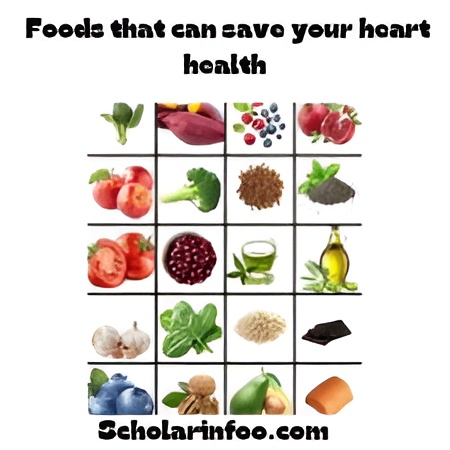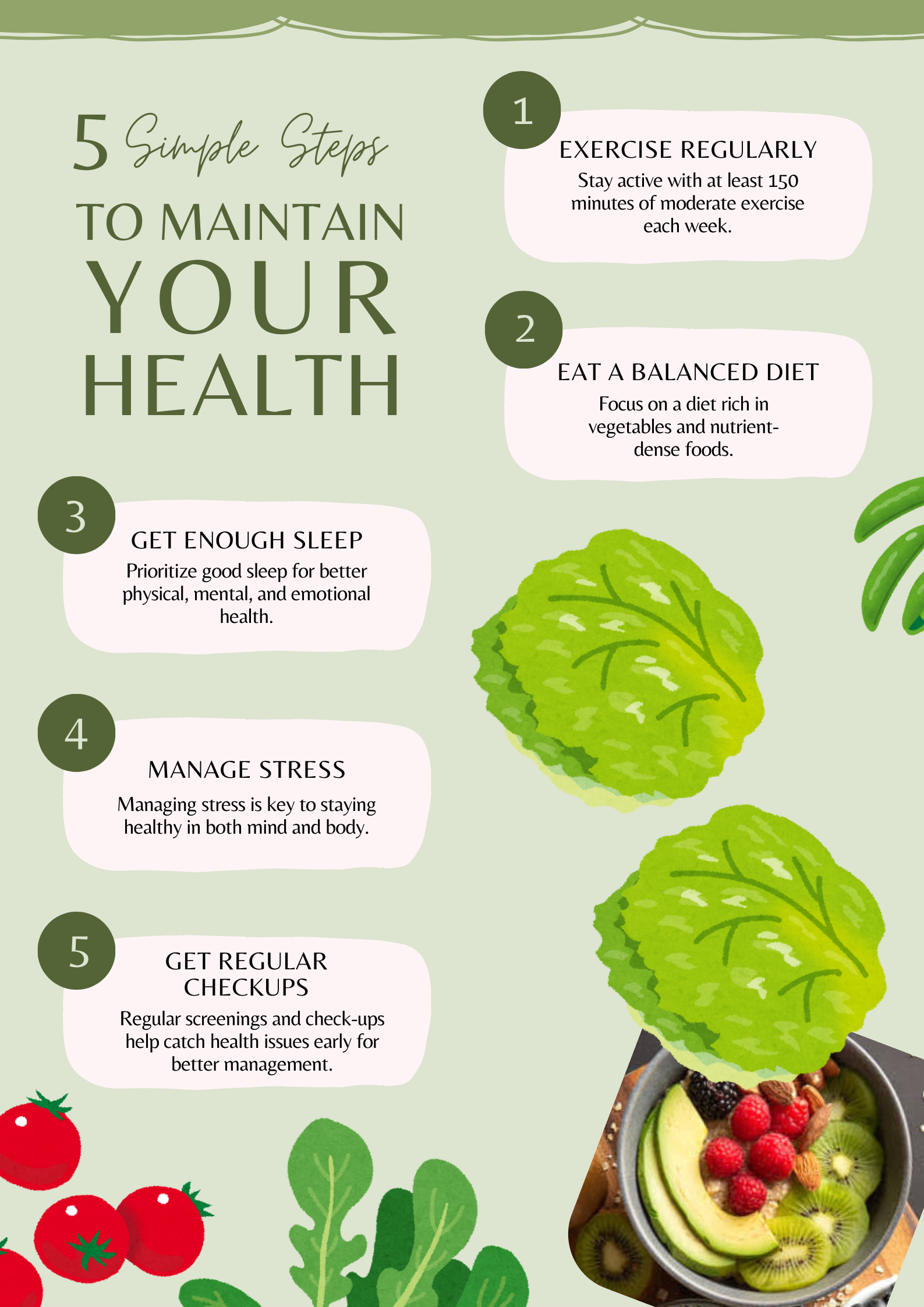A Shocking Reality
Silent threat of heart attack: Did you know that nearly 18 million people die each year because of heart diseases? Accordingly, the greatest cause of death worldwide is heart diseases. This is a silent killer that keeps growing until it soon catches its victims unnoticed. So, which is why it’s important to prevent heart diseases.
A Wake-Up Call
A corporate executive at the age of 40, Abraham had always thought of himself as the picture of health. Because of his busy schedule, he works too many hours, eats fast food, and neglects exercise. Out of nowhere, he suddenly realized a severe chest pain and dizziness that would describe a heart attack. In a state of panic, he had to rush to the hospital. After examination, doctors said that his heart had significantly deteriorated from years of an unbalanced life. Fortunately, he was treated timely to save his life, but he would have to acknowledge significant lifestyle changes to his everyday habits to prevent him from getting into complications.
A Growing Global Concern
This is a problem for the individual, and not only individual, it is a global epidemic. Because of unhealthy eating, sedentary lifestyles, and constant tension, you will see problems cropping up-such as hypertension/high blood pressure, fatness/obesity, and diabetes, which all increase the risk of heart diseases. Unfortunately, most people, like Abraham, will not think of such a possibility until a serious health condition shows up.
A Heart-Healthy Lifestyle
The good news? That Heart diseases are preventable, and this can be achieved by practicing a healthy and active lifestyle. Here are some guidelines:
- Healthy diet: Feed on leafy greens, nuts, and omega fatty acids fish in the diet.
- Exercise Regularly: Take to brisk walking, jogging, or any physical activity that keeps the heart strong.
- Manage stress: Dedicates on meditation approaches, practices deep breathing exercise, and relaxing activity.
- Leave bad habits: Do not smoke or drink alcohol to keep the heart healthy.
For example, take Ayesha. She is now 50 and has a family history of heart disease. However, she chose to change her health status. The last processed food she’s ever eaten was yesterday at lunch; she walks every day and meditates now as a habit. And her heart is stronger than it has ever been. It testifies that even the smallest changes, but permanent, can turn one’s life around. From centuries back to now, heart diseases are killing millions of people; it was not always like this as before the arrival of the 20th century, the most threatening diseases were tuberculosis and pneumonia. At that time, medical advances had affected these diseases letting them fall into lifestyle diseases.
- 1950s: Research indicated that high-fat diets were associated with high rates of heart disease. E.g. seven countries study.
- Fast food, processed foods, and low-activity lifestyles began in the late 1980s-1990s. This caused a fast spread of obesity and heart related illness.
- Presently, modern treatments might not be able to solve all heart disease One would include, besides nothing else, poor eating habits, no exercise, and constant stress to be triggers for such problems. Therefore, risk still abounds but can be reduced as one adopts the right lifestyle.
2. The Role of Cholesterol, Blood Pressure, and Inflammation in Heart Disease
Risk factors are caused by a gradual build-up in heart disease. The primary causatives factors include but are not limited to:
- Cholesterol: Increased levels of LDL accumulate in arteries, causing blockages. When this happens, the chance of a heart attack greatly increases.
- High Blood Pressure: Increases pressure and tempers with the function of arteries, which in turn results in hardening of the arteries. This is dangerous as the chances of having a stroke and heart failure are increased.
- Inflammation: Inflammation damages blood vessels because it is chronic. Processed foods, stress and smoking induce it further and thus result clogging of arteries.
These factors will jointly affect one’s heart health quite adversely. But those risks can be lessened quickly and rightly.
4. Scientific Studies on Nutrition’s Impact on Heart Health
A thorough research from science in a whole reveals that a healthy diet sits as an essential factor in heart health. These experiments have shown that modified dietary habits directly reduce heart disease risks. Well-chosen food keeps a heart healthy.
Plant-Based Protein Intake and Heart Health (Harvard T.H. Chan School of Public Health, 2024)
A diet whose intake of protein comes mainly through plant sources and reduces the intake of protein drawn from animal sources, lowers men’s risk of heart disease, according to a research done by Harvard T.H. Chan School of Public Health. It is said to have a specific effect in safeguarding the men against coronary heart disease. Studies show that incorporating sources of plant-derived proteins into the diet positively influences cardiovascular health-for benefits over time.
Anum a 45-year-old teacher dared to lose some weight upon discovering the benefits of plant-based protein. He has been cutting down on meat and has formulated his diet with lentil soup, chickpeas salad, and tofu stir-fry. After a few months, her energy immensely increased, while her cholesterol level significantly dropped. It only shows how even a little change with your diet can affect your health positively.
Ultra-Processed Foods and Cardiovascular Risk (INSERM, 2024)
Such exposure as in this study by the French National Institute of Health and Medical Research (INSERM), shows that such food with low nutrition scores should increase the chances of developing heart disease in a person. Ultra-processed foods are examples. More studies state that the consumption of little processed, healthy, nutrient-dense foods is more advantageous to heart health.
Real-Life Example: Aina an engineer aged 50 years and practically lives on processed snacks and ready-to-eat meals because of her busy schedule. She knows fully well about the harms of ultra-processed foods and has resolved to have fresh home-cooked meals to herself. As of now, sweet cereals have been substituted with oatmeal and strawberry whole wheat breads for regular white bread. After a few months, the pounds started to drop and her blood pressure became stable again. This is still one way that little changes in diet can effect a great deal of difference in health.
Plant-Based Diets and Reduced Cardiovascular Disease Risk (University of California, Irvine, 2024)
Research: As per the research conducted at the **University of California, Irvine**, it was revealed that a vegetarian and plant-based diet significantly promotes a 15% reduction in heart disease risks. This can be achieved by balancing blood pressure, LDL cholesterol and BMI, all of which are recognized as contributing factors to heart disease risk. Hence, adopting such an approach proves to be preventive against heart diseases.
Real-Life Example: At the age of 38, Ayesha works as a graphic designer. She became a vegetarian after she learned about different plant-based sources of heart health. Her diet now consists of vegetables, fruits, healthy grains, beans, and nuts. Ayesha enjoys cooking such things as quinoa salad, black bean burgers, and almond smoothies. A year later, her doctor observed her lipid profile that had improved considerably and commended Ayesha for changing her lifestyle habits in this way.
21 Foods That Can Save Your Heart
A heart-healthy diet is not just about avoiding unhealthy foods—it’s about adding nutrient-dense, beneficial foods that actively improve cardiovascular health. Below is a list of 21 heart-saving foods, their benefits, and how to incorporate them into your diet.
Heart-Healthy Foods & Their Benefits
- Salmon – Highly thick in Omega-3, it lowers blood pressure and inflames. Either grill, bake, or toss in a salad.
- Avocado – Provides healthful fats and potassium to improve heart functioning. Add to smoothies, smear on toast, or include in guacamole.
- Walnuts – It balances cholesterol and attenuates oxidative stress. Chew them in the morning or sprinkle them over salads and oatmeal.
- Blueberries provide antioxidants that protect the heart and also improve blood circulation. Fresh ones can be consumed, or mixed with yogurt, or just add them to a smoothie.
- Dark Chocolate (80%+ Cocoa) – It improves blood flow and regulates blood pressure. Eat a small piece for it or even mix it into a smoothie.
- Oatmeal: Once again, oatmeal, rich in fiber, is the key to reducing cholesterol numbers and is required at breakfast or can be added to the smoothie.
- Spinach-nitrite rich; makes arteries perform better, adding to salads, omelets or smoothies.
- Garlic lowers blood pressure and cholesterol.
- Add to stir-fries, soups or roasted veggies. Almonds provide vitamin E and unhealthy fats, which are bad for the heart; eat raw or add to yogurt and cereals.
- Olive oil: Lowers cholesterol and prevents bad. Drizzle over salads or use in stir-frying.
- Green Tea: It’s antioxidants doing cholesterol at the padding of heat cold.
- Beans- comforting and tames; they too share their part in the bill with sugar and cholesterol as souper, salad, or spread.

And
- Tomato-lycopene, which makes bad cholesterol lower. Eat raw, with your salads, or use as a sauce.
- Chia Seed- Omega 3 and proper, dangerous uniformly to you. Add them into smoothies, yogurt, or porridge.
- Flaxseeds – Good in reducing cholesterol and inflammatory responses. Mix up smoothies, yogurt, or baked bodies with it.
- Broccoli– which is therefore good at fortifying blood vessels and is rich in antioxidants. Steam, stir fry, or throw into soups.
- Apple: Regulates cholesterol and is a high-fiber fruit. Fresh ingest, juice it, or cook slightly.
- Pomegranate: has a high polyphenol content. For example, it is known to enhance heart health. Most people prefer taking it in juice form or sprinkling powder on salads.
- Berries: are vitamin C-rich and antioxidant-packed to prevent inflammation. Enjoy for breakfast or mix with a smoothie.
- Sweet Potatoes: These are great sources of fiber and potassium and help maintain normal blood pressure levels. They may be roasted, mashed, or made into soup.
- These dark leafy greens (Kale, Swiss Chard) are a rich source of magnesium which readily enhances heart function. Add those into salads, wraps, or smoothies.
These nutrient-rich foods keep the heart strong and promote overall well-being.
Examples of Heart-Healthy Diet Changes
🔹 Case 1: John’s Cholesterol Improvement
Bisma, a girl of 50 years, decided to change his diet and reduce his high cholesterol levels. Stop eating white bread and processed snacks. Start mornings with oatmeal, flax seeds, and walnuts. Replace grilled salmon by having steamed vegetables instead of fried food. For snacking, eat almonds and pieces of dark chocolate. Checked after half a year, their cholesterol already lowered, and doctors applauded their healthier habits concerning diet.
🔹 Case 2: Maria’s Blood Pressure Control
Hamna, a 45-year-old teacher, made dietary changes to lower her high blood pressure. They started eating more green tea, garlic, avocado and pomegranate. Instead of butter, prefer olive oil. In just four months, his blood pressure improved.
Debunking Diet Myths: Interactive & Shareable Guide
Food and nutrition are topics that spread misinformation like wildfire. Unfortunately, often it becomes tough to know fact from fiction. This interactive guide promises to bring some clarity to some of the biggest misconceptions and mythologies. Easy question-and-answer style and myth-vs. Reality tables can effectively polish all your debates. Get ready to restate your information!
Common Diet Myths – Q&A Format
🔍 Question: Are fats responsible for making one fat?
✅ Answer: No, they aren’t. In fact, healthy fats found in avocados, nuts, and olive oil help with metabolism and also the brain. Everybody gets overweight just by moving less and taking in fewer calories.
🔍 Question: Every carbohydrate is harmful.
✅ Answer: No! During the consumption of oats, quinoa, and whole grains at least fiber and energy is obtained from these foods. The real cause has been the excessive intake of extra sugars and refined carbohydrates.
🔍Question: Does eating after 8 pm make you gain weight?
✅Answer: Not when you eat, it all depends on your total kcal intake during the day. If caloric intake is balanced, it will not result in weight gain even if taken at night.
Join the Discussion!
💬 We’re definitely open to hearing your voice! All right then, let’s kick this off: what would be a very well-thought myth in dieting that you’ve ever bought into? Let’s break it down!
📢 So, share this with your loved ones as much as the truth is about eating healthy.
How Diet & Lifestyle Keep Your Heart Strong
Diet solely does not make the heart healthy. Regular exercise with good sleep and stress management also contribute to heart health. All these components will be beneficial to improving the general heart health and in turn improving overall health.
Why Diet & Exercise Work Best Together
It is healthful to the combined effect of diet and physical activity in strengthening hearts. A balanced diet offers needed power; while being active improves the heart’s performance. Nutritional cholesterol and blood pressure levels are reduced, whereas the exercise is excreted by improved circulation and healthy weight maintenance.
💡 Example:
Busy moms tend to get tired easily and Sarah was one of those mothers. Cholesterol level was high, and she was losing energy with a strict diet. Instead, she decided to switch to simply nutritious foods and walk for 30 minutes every day. Within a few months, she began to feel ‘a little’ more energetic, and her cholesterol leveled-off, which is great.
7-Day Heart-Healthy Meal & Workout Plan
Simple meals and easy exercise can change your overall health without taking too much time.
🍽️ Meal Plan:
- Monday: Get up: Porridge with flaxseed | Lunch: Quinoa with Grilled Salmon | Dinner: Veggie stir-fry with brown rice.
- Tuesday: Breakfast: Avocado on Toast | Lunch: Lentil Soup | Dinner: Roast Chicken with Some Sweet Potatoes
- Wednesday: Breakfast: Greek Yoghurt topped with Walnuts and Berries | Lunch: Salad featuring Fresh Chickpeas | Dinner: Grilled Fish with Broccoli.
- Thursday: Breakfast – Spinach and Banana Smoothie with chia seeds | Turkey roll served with whole grain bread | Stir-fried vegetables for garnish with garlic.
- Friday: Scrambled eggs accompanied by whole wheat toast | Middle East style quinoa bowl | Baked salmon with Brussels sprouts.
- Saturday: Oat green smoothie | Brown rice with beans | Olive oil marinated grilled chicken.
- Sunday: Almond buttered banana toast | Light, healthy tuna salad | Whole wheat bread with tomato soup.
🏋️♂️ Workout Plan:
A Balanced Weekly Fitness Routine
- Monday: 30 minutes of brisk walking and 10 minutes of body-weight exercises (push-ups, squats)
- Tuesday: 20 minutes of yoga along with stretching
- Wednesday: 30 minutes of cycling or jogging
- Thursday: Strength training with light weights/resistance bands
- Friday: 40 minutes of walking and core exercise (plank variations, leg lifts)
- Saturday: Some recreational activity (dancing, swimming, or hiking)
- Sunday: Light stretching or complete rest
💡 Real-Life Example:
Ali had worked in the office, and he suffered from high blood pressure. Doctor advised, good diet and exercise. He made it possible through proper diet with exercise every day. After some months, he lost weight, increased energy, and balanced blood pressure. Now, it is fit than it used to be.
Best Free Apps to Track Heart Health
Technology has made fitness simpler and more efficient. Here are some free applications that would assist in weighing down diet, exercise, and heart health:
- My Fitness Pal– Shows calorie and nutrient intake.
- Yazio- Gives meal ideas and checks micronutrient intake.
- Google Fit– Records daily step counts and heart rates. Cardiogram– Monitors heart rate trends and irregularities.
- Nike Training Club– Provides cardio and strength workouts.
💡 Example:
Ahmad was a retired man who followed his food intake through MyFitnessPal and followed his step count through Google Fit. Those simple actions really did help reduce cholesterol and keep him active.
Five superfoods for a healthy heart
- Salmon- Omega-3 fatty acids lower blood pressure and lessen inflammation.
- Walnuts- Walnuts can manage cholesterol levels, and repair and strengthen the arteries.
- Oats- The fiber from oats prevents deposits of bad cholesterol.
- Avocado- The potassium and good fat of avocado will guarantee the heart’s best function.
- Berries- Antioxidants in berries assist in inflammation and proper as well as maintenance of heart health.
- Incorporating these 21 heart-healthy foods into your daily meals can reduce cholesterol, regulate blood pressure, and prevent heart disease. Instead of strict dieting, focus on sustainable, healthy choices—your heart will thank you for it! ❤️

Expert Opinion
🔹 Dr. Jane Peterson, Cardiologist:
A balanced diet supplemented with healthy fats and fiber will minimize the risk of heart disease. Mediterranean diet, such as olive oil, nuts, and fish, is good for the heart and great for overall cardiovascular health.
🔹 Lisa Carter, Nutritionist:
Small modifications, such as substituting nuts for chips or eating quinoa as opposed to plain white rice, can significantly improve heart health in the long run. These types of choices add up over years of consistent healthy eating.

